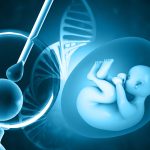Researchers link IVF use to an increased risk of breast cancer
 (NaturalHealth365) In vitro fertilization (IVF) has become one of the primary methods of assisted reproductive technology for individuals dealing with infertility. The connection between the medications used during the IVF process and breast cancer has been the subject of many studies, with sometimes differing results.
(NaturalHealth365) In vitro fertilization (IVF) has become one of the primary methods of assisted reproductive technology for individuals dealing with infertility. The connection between the medications used during the IVF process and breast cancer has been the subject of many studies, with sometimes differing results.
Breast cancer is one of the most common cancers in women. Although an increase in the risk of breast cancer has been linked to hormones like estrogen, there seem to be conflicting results from specific studies between IVF and the disease.
Conflicting evidence: Do fertility drugs increase breast cancer risk?
Most women who undergo IVF are required to take medications like gonadotropins and Clomiphene citrate that stimulate the female reproductive system to increase ovulation and prepare the body for an egg to be fertilized.
The concern is that if these medications are taken for an extended period, will it cause a dramatic increase in the risk of breast cancer for these women. It seems that for every study that says there is an increase, another study says there is not. So where does that leave you? Should you be concerned?
Are you considering IVF? Know your cancer risk before getting started
There is enough evidence that suggests the risk of breast cancer in women who have undergone IVF is real. It has been proven that by taking hormone-based medications like birth control, and now IVF medications, there is a distinct possibility that may lead to an increase in breast cancer or other cancers of the reproductive system.
The real issue why the studies have such conflicting results may not lie in the use of the hormones so much as it does with the woman’s predisposition to cancer. Every woman carries some degree of risk for cancers of the female reproductive system. Family history and exposure to environmental toxins also play a role.
Discover a Simple and Effective Way to Remove Toxins: This is Jonathan's #1 choice for at-home detoxification. Special offer ends Feb. 16.
This sex hormone has a profound impact on cancer development
The key to understanding many of these studies goes back to the link that estrogen and other hormones have on a woman’s risk of developing cancer. A woman who took birth control pills for several years may have an increased risk of breast, ovarian, or uterine cancers, much like a woman who took IVF medications for an extended period.
For many women who rely on in vitro fertilization for the opportunity to become a mother, the risk takes on a new perspective. While it’s important to look at each study as objectively as possible, many women will put the risk aside if it will allow them to conceive and carry a child.
Here is how to calculate your individual cancer risks
In general, the use of IVF medications for any length of time has a link to an increase in the risk of breast cancer. But, just how significant is this risk to you? Unfortunately, there is no way to predict who will succumb to the disease.
That’s why it is best ALWAYS to weigh the risks and the benefits of undergoing any medical intervention. Studies have shown that IVF medications can increase breast tissue density and make it more likely for breast cancer to develop. However, it does not mean that every woman who uses them will end up with a diagnosis.
Bottom line: your lifestyle, diet, level of activity, and day-to-day stress will all have to be factored in as you calculate your risk. You must also include your past medical history as well as that of your family. When looking at the big picture, you may find that you have a higher than average risk of breast cancer once you add in the use of IVF medications. You must remember, however, your results are unique to you and your health.
The studies that have been performed about IVF medications and their association to an increase in the risk of breast cancer are speculative at best. With all of the other possible factors associated with the risk of breast cancer, it is hard to say whether or not the use of IVF medications on their own will have such a dramatic impact.
Look at the studies yourself and include your risk factors. Then, talk to your doctor and ask for help assessing your degree of predisposition to cancer.
Sources for this article include:



